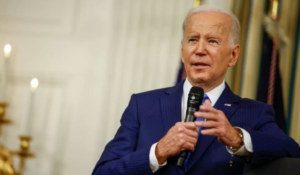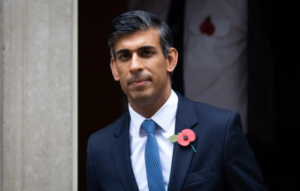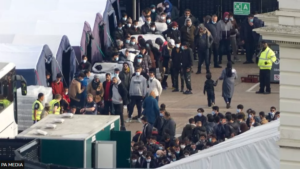Covid: New variant classed ‘of concern’ and named Omicron

Covid
Covid – The World Health Organization (WHO) has declared a new coronavirus variant to be “of concern” and named it Omicron.
It had a large number of mutations, and early evidence suggested an increased reinfection risk, the WHO said.
It was first reported to the WHO from South Africa on 24 November, and has also been identified in Botswana, Belgium, Hong Kong and Israel.
A number of countries around the world have now decided to ban or restrict travel to and from southern Africa.
Travellers from South Africa, Namibia, Zimbabwe, Botswana, Lesotho and Eswatini will not be able to enter the UK unless they are UK or Irish nationals, or UK residents.
US officials said flights from South Africa, Botswana, Zimbabwe, Namibia, Lesotho, Eswatini, Mozambique and Malawi would be blocked, mirroring earlier moves taken by the EU. It will come into effect on Monday.
Brazil and Australia also introduced travel restrictions.
‘Bad news – but not doomsday’
On Friday, the WHO said the number of cases of this variant, initially named B.1.1.529, appeared to be increasing in almost all of South Africa’s provinces.
“This variant has a large number of mutations, some of which are concerning,” the UN public health body said in a statement.
It said “the first known confirmed B.1.1.529 infection was from a specimen collected on 9 November”.
The WHO said it would take a few weeks to understand the impact of the new variant, as scientists worked to determine how transmissible it was.
A top UK health official warned that vaccines would “almost certainly” be less effective against the new variant.
But Professor James Naismith, a structural biologist from the University of Oxford, added: “It is bad news but it’s not doomsday.”
Read Also – Mahmood Ahmadu Wins Big in Forbes 2021 Awards
He said mutations in the variant suggested it may spread more quickly – but transmissibility “is not just as simple as ‘this amino acid does this'” and was determined by how mutations worked together.
Only about 24% of South Africa’s population is fully vaccinated, which could spur a rapid spread of cases there, Dr Mike Tildesley, a member of the Scientific Pandemic Influenza Modelling group (Spi-M), told the BBC on Friday.
Meanwhile, US infectious disease chief Dr Anthony Fauci said that while the reports on the new variant threw up a “red flag”, it was possible that vaccines might still work to prevent serious illness.
“Until it’s properly tested… we don’t know whether or not it evades the antibodies that protect you against the virus”, Dr Fauci told CNN.
The WHO has warned against countries hastily imposing travel restrictions, saying they should look to a “risk-based and scientific approach”.
However, in addition to the UK, and the US and the EU, a host of other countries have also announced restrictions:
- Australia announced on Saturday that flights from South Africa, Namibia, Zimbabwe, Botswana, Lesotho, Eswatini, the Seychelles, Malawi, and Mozambique would be suspended for 14 days. Non-Australians who have been in those countries in the past two weeks are now banned from entering Australia
- Japan has announced that from Saturday, travellers from much of southern Africa will need to quarantine for 10 days and take a total of four tests during that time
- India has ordered more rigorous screening and testing for travellers arriving from South Africa, Botswana and Hong Kong
- Iran will ban travellers from six southern African countries, including South Africa. Iranians arriving from the region will be admitted after testing negative twice, state TV says
- Brazil also said it was restricting travel to the region from six countries in Africa
Source – https://www.bbc.co.uk/





